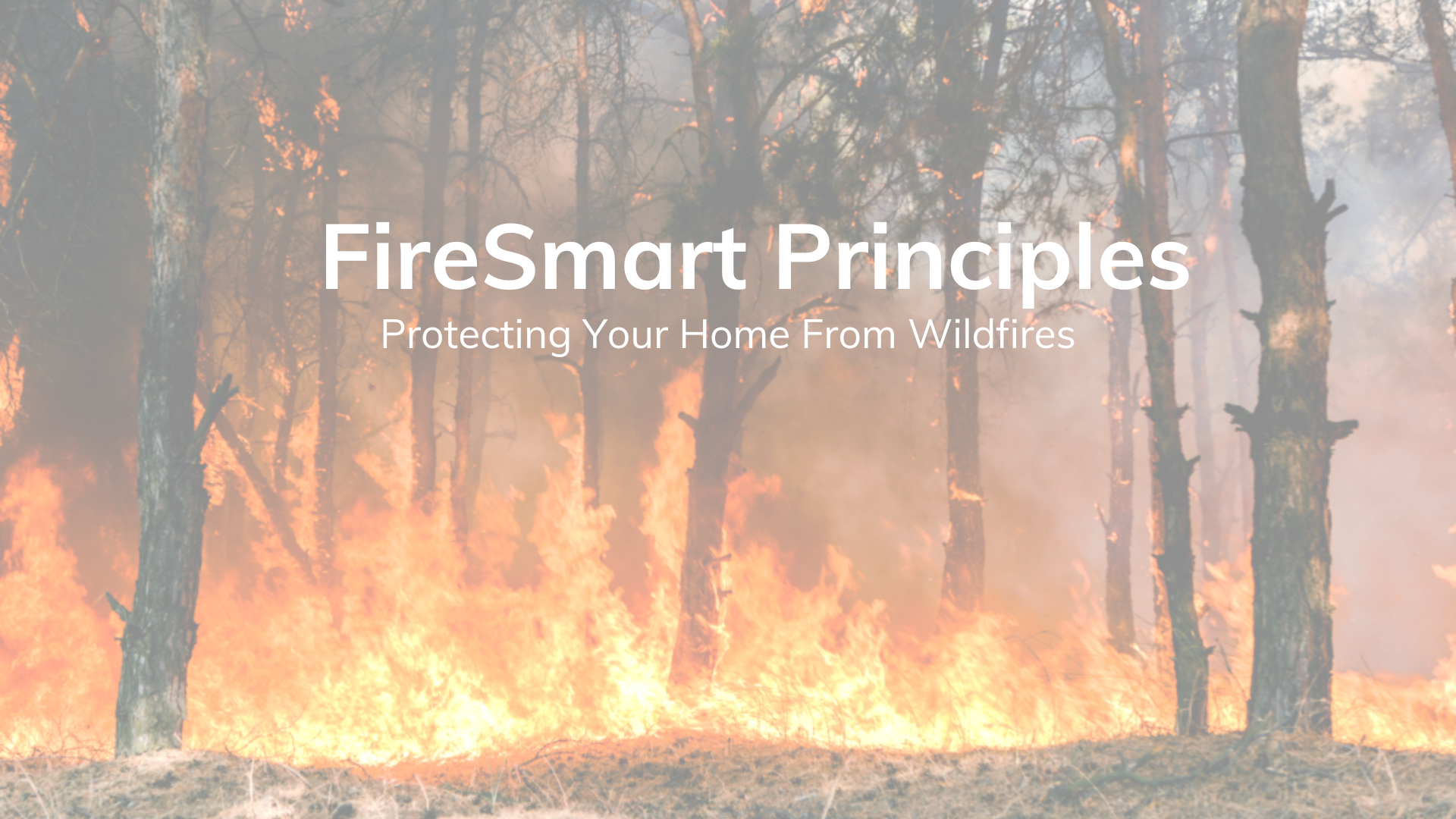Wildfires are an ever-present threat in many regions, and the recent wildfire seasons in British Columbia have underscored the importance of preparedness. Following FireSmart principles can significantly reduce the risk of wildfire damage to your home. Here are the key FireSmart tips to keep your home safe.
Create a Fire-Resistant Zone
Clear Space Around Your Home: Maintain a minimum 1.5-meter non-combustible zone using gravel, stone, or other fire-resistant materials. This includes not having shrubs under your eaves.
Prune Trees and Shrubs
Vegetation Management: Prune branches to at least 2 meters above the ground to reduce ladder fuels and remove any dead or dry vegetation.
Maintain Your Roof and Gutters
Regular Cleaning: Keep your roof and gutters clear of leaves, needles, and debris. Consider installing gutter guards.
Use Fire-Resistant Building Materials
Building Standards: Choose Class A roofing materials like metal or asphalt shingles and fire-resistant siding such as hardie-board.
Design a Fire-Resistant Garden
Fire-Safe Landscaping: Plant fire-resistant species, keep plants well-watered, and avoid plants that produce lots of dry, dead material. Many nurseries offer a FireSmart Plant Program. See the FireSmart website for additional information.
Keep Sheds, and Store Firewood and Combustible Materials Safely
Proper Storage: Keep sheds, firewood, and other combustible materials at least 10 meters from structures. Ideally, uphill or on the same level as your home, never downhill.
Seal Eaves, Vents, and Soffits
Prevent Ember Intrusion: Use fine mesh screening to block embers from entering attics and ensure all openings are properly sealed.
Choose Deciduous Trees Over Conifers
Tree Selection: Deciduous trees are less combustible than coniferous trees like pines or firs. Planting deciduous trees over conifers can reduce fire risk around your home.
Prepare an Emergency Kit
Emergency Preparedness: Include essentials like water, food, medications, and important documents, and ensure each family member knows the evacuation plan out of their neighbourhood and established plans with friends or family in neighbouring communities is a good idea.
Stay Informed and Involved
Community Engagement: Participate in local FireSmart community programs and stay updated on local fire weather conditions and alerts.
Implementing these FireSmart principles can significantly enhance your home’s resilience against wildfires. Many people start at the furthest reaches of their property when, in fact, the most significant impact is on improvements made near the home. Simple changes can make a big difference, providing peace of mind and protecting your property.
Given the recent severe wildfire seasons in BC, where thousands of hectares have burned and many communities have faced evacuation, it’s more important than ever to be proactive. The BC Wildfire Service and local authorities have emphasized the need for preparedness and community involvement. In BC, building standards are increasingly incorporating FireSmart principles to ensure new constructions are better protected against wildfires.
Sources:
BC FireSmart: firesmartbc.ca
National Fire Protection Association (NFPA): nfpa.org
BC Wildfire Service: bcwildfire.ca
BC Building Code: British Columbia Building Code bccodes.ca
Remember, being proactive and prepared is the best defense against wildfires. Stay safe, stay informed, and stay FireSmart!


